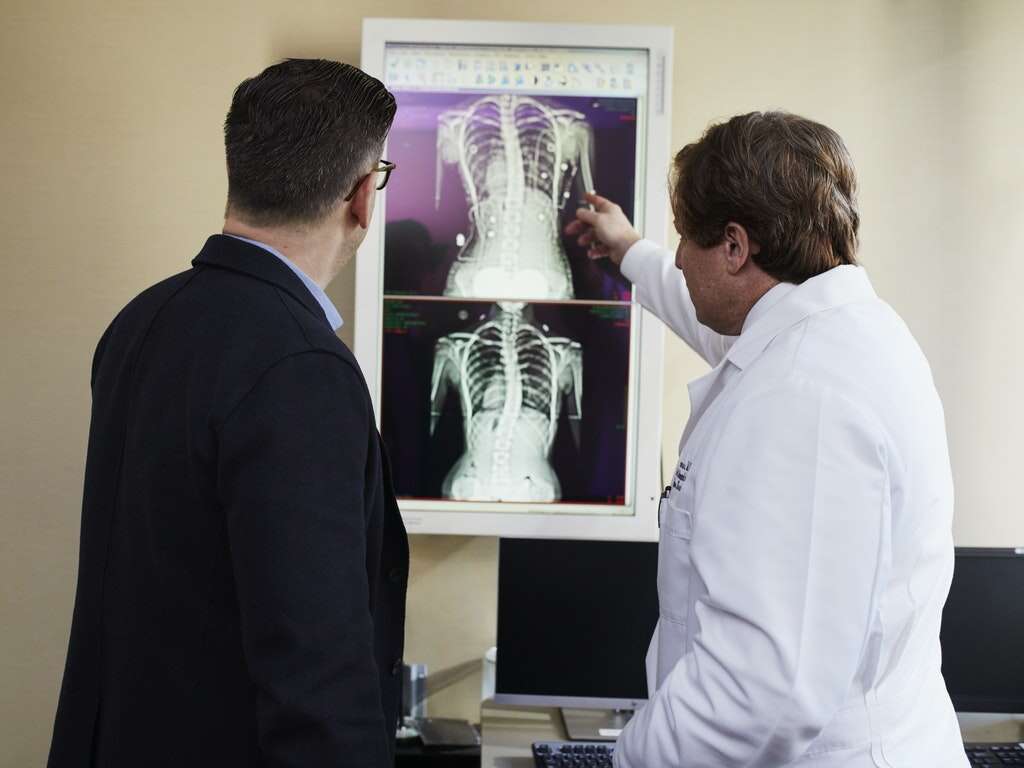10 Causes of Solar Plexus Pain
The celiac plexus is also known as the solar plexus due to the radiating nerve fibers. It is a complex network located in the abdomen.
It is formed by both the greater and lesser splanchnic nerves combined with the anterior and posterior vagal trunks. The celiac plexus is known as the solar plexus as it is located below the stomach where the superior mesenteric artery, celiac trunk, and renal arteries branch from the abdominal aorta.
There are various causes for solar plexus pain and 10 of these causes are discussed below.

Cause #1: Anxiety
Anxiety is an unpleasant emotion where there is a feeling or state of nervous behavior such as rumination, somatic complaints, and nervousness. It describes unpleasant feelings where there is dread about anticipated events such as having a feeling of imminent death.
It should not be confused with fear, which is in response to an immediate or real threat; anxiety regards possible threats. Anxiety is often accompanied by fatigue, concentration issues, muscular tension, and restlessness. Anxiety is one of the common causes of solar plexus pain.

Cause #2: Ulcers
Stomach ulcers or peptic ulcer disease occurs when there is a break in the stomach lining or duodenum. It can be generally categorized into gastric (stomach) ulcer or duodenal ulcer. The commonest symptoms include waking up at night with abdominal pain, burning or dull ache in the upper abdomen, weight loss, belching, vomiting, and poor appetite. It can lead to complications such as perforation and bleeding.
The commonest cause of ulcers is Helicobacter pylori or the use of nonsteroidal anti-inflammatory drugs (NSAIDs). Stomach ulcers can cause solar plexus pain.

Cause #3: Trauma
Trauma refers to any injury that could cause death or disability. It can have various causes such as falls, road traffic accidents, assaults, and gunshot wounds. Management of trauma is time sensitive and crucial as it may help prevent the loss of limb or life.
While trauma is not a common cause of solar plexus pain, it occurs due to impact below the area leading to injury of the internal structures and blood vessels. Injury to the solar plexus region can cause the diaphragm to spasm and also disruption of the function of the viscera.

Cause #4: Gastroesophageal Reflux Disease
Gastroesophageal reflux disease or acid reflux occurs when there is backflow of stomach contents into the esophagus. It may lead to complications such as esophagitis, Barrett’s esophagus, and esophageal stricture. Symptoms of gastroesophageal reflux include bad breath, heartburn, acid taste at the back of the mouth, vomiting, chest pain, and breathing difficulties.
Risk factors of acid reflux include hiatal hernia, obesity, pregnancy, smoking, and the use of certain medications such as calcium channel blockers, antihistamines, antidepressants, and sleeping medication. Acid reflux is also a cause of solar plexus pain.

Cause #5: Diabetes
Diabetes is a group of metabolic disorders where there is prolonged hyperglycemia leading to symptoms such as increased thirst, frequent urination, and increased hunger. It can lead to many complications such as diabetic ketoacidosis, death, and hyperosmolar hyperglycemic state. It also increases the risk of chronic kidney disease, cardiovascular disease, stroke, foot ulcers, and damage to the eyes.
Diabetes occurs when the pancreas is not producing enough insulin or due to insulin resistance. Prevention and management include regular exercise, a healthy diet, a normal body weight, and avoiding tobacco use. Diabetes can lead to nerve damage that affects both the vagus and solar plexus nerve.

Cause #6: Asthma
Asthma is a common chronic condition affecting the airways of the lungs. Symptoms include coughing, wheezing, shortness of breath, and chest tightness. Asthma attacks may occur several times a day or week depending on how well the condition is controlled. Asthma is thought to be due to a combination of environmental and genetic factors.
Although there is no cure for asthma, the symptoms can be prevented through avoiding allergens and using inhaled corticosteroids. Asthma can sometimes cause solar plexus pain due to difficulty breathing.

Cause #7: Pulled Muscle
A strain or pulled muscle refers to a soft tissue injury that occurs to a tendon, muscle, or both. It can cause muscle weakness, pain, localized inflammation, bruising, and loss of function. Depending on the severity of the injury, the pain can range from mild to severe. The risk of a pulled muscle is higher for those who are active in sports.
Treatment for a pulled muscle usually involves rest, ice, compression, and elevation. The use of pain medication such as paracetamol (acetaminophen) and NSAIDs may be beneficial as well. It can also be a painful cause of solar plexus pain.

Cause #8: Bronchitis
Bronchitis is a condition where there is inflammation of the bronchi causing symptoms such as wheezing, shortness of breath, mucus, and chest discomfort. It can be divided into acute and chronic bronchitis. Acute bronchitis occurs when the cough lasts more than three weeks and is usually caused by a viral infection. Chronic bronchitis is defined as a productive cough that is present for more than three months a year for more than two years.
In more than 90 percent of cases, bronchitis is caused by a viral infection. In some cases of bronchitis, solar plexus pain can be due to difficulty breathing.

Cause #9: Pancreatic Cancer
Pancreatic cancer occurs when cells in the pancreas grow out of control forming a mass with an ability to invade surrounding areas. There are several types of pancreatic cancer with pancreatic adenocarcinoma accounting for about 85 percent of cases. Signs and symptoms of pancreatic cancer include abdominal pain, back pain, yellow skin, light-colored stools, unexplained weight loss, appetite loss, and dark urine.
Risk factors of pancreatic cancer include obesity, tobacco smoking, rare genetic conditions, and diabetes. It can be diagnosed with the help of medical imaging, blood tests, and biopsy. Pancreatic cancer that spreads can cause solar plexus pain.

Cause #10: Pancreatitis
Pancreatitis is a condition where there is inflammation of the pancreas. Symptoms of pancreatitis include nausea, vomiting, and pain in the upper abdomen. The pain is often severe and radiates to the back. Acute pancreatitis may also lead to a fever. Chronic pancreatitis can lead to diarrhea and fatty stools. Complications of pancreatitis include bleeding, infection, diabetes, and problems with the other organs.
Pancreatitis is caused by blockage of the common bile duct by a gall stone, heavy alcohol use, side effect of medications, infections, tumors, and direct trauma. Treatment includes intravenous fluids, antibiotics, pain medication, and possible surgical procedures. It is also a cause of intense solar plexus pain.










